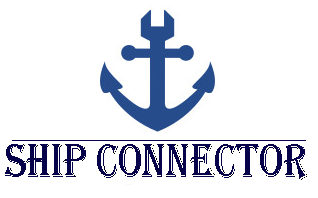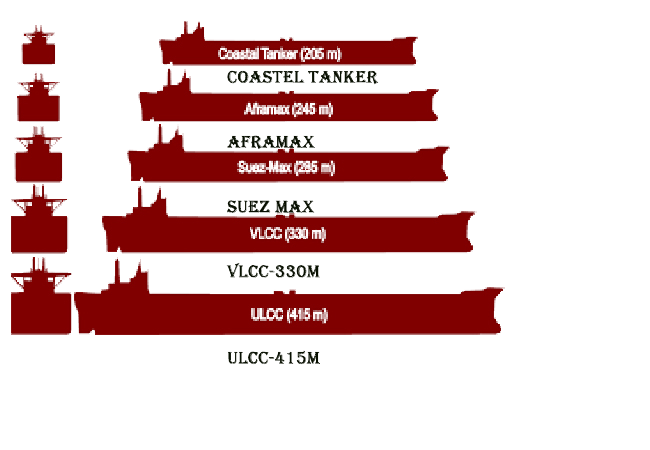
Types of Merchant Navy Ships
Contents
Merchant navy professionals mainly work on cargo ships or commercial vessels. Some of the main types of ships they work on are:
- Container ships
- Bulk carriers / Bulkers
- Tanker ships
- Gas Carrier (LNG/LPG/CNG)
- Passenger ships/cruise ships
- Ro-R0 ships (Roll-On Roll-Off vessels)
- Ferries
- Offshore vessels
Let us Read more on
Types of ship and their role

Container Ship
The Container ships are the cargo vessels carrying in containers all of their load. They are a popular commercial vehicle and now carry most non-bulk seagoing cargo.
The capability of container ships is evaluated in 20-foot equivalent units (TEUs). Typical loads are a mixture of standard ISO containers 20-foot and40-foot(2-TEU).
Today, container vessels transport around 90% of non-bulk cargo globally and the biggest contemporary container vessels can carry more than 21,000 TEU.
WIKI-TEU
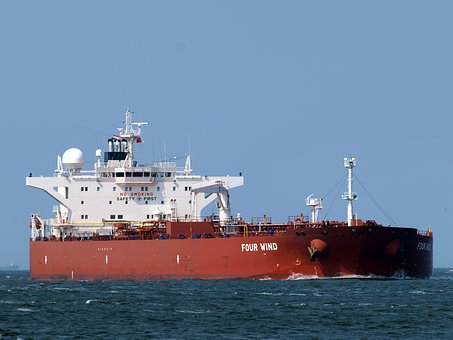
Bulk Carrier
Generally, a bulk carrier ship carries bulk cargo in its cargo holds, such as grains, coal, ore, and cement.
Also, they are multi-purpose vessels that can carry steel coils, iron bars, paper bundles, etc. Very big B. Capesize & handymax C carriers. Panamax D. Bulk carrier E.Mini Handysize

Tanker ship
A tanker is a ship designed to transport liquids or gases in bulk. There are different type of tanker ,which include oil tanker,chemical tanker, gas carrier. Tankers also carry vegetable oils, molasses and wine.
Type of Tanker ships

Oil Tanker
Oil tanker:-
is a ship designed for the transport of oil or its products
There are two basic types of oil tankers: crude tankers and product tankers.

Crude Oil Tanker
Transport large quantities of unrefined crude oil from its point of extraction to refineries.
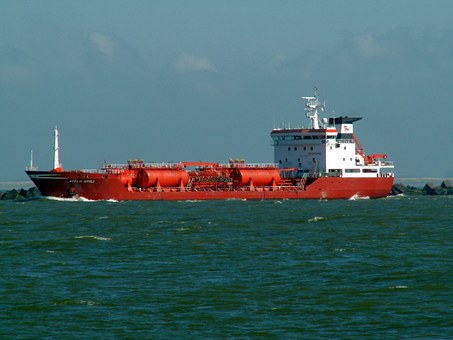
Product Tanker
Is a ship designed for transporting refined products from the refineries such as gasoline, diesel oil and aviation fuel.
Generally much smaller, are designed to move refined products from refineries to points near consuming markets.
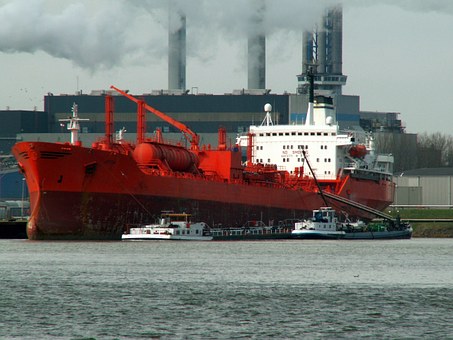
Chemical Tanker
Chemical Tanker:-Is a vessel intended to carry various types of chemicals but also capable of carrying the same products as the Product Tanker. In most cases, when it comes to the cargo handling system, a chemical tanker is more advanced than the Product Tanker as it is necessary to avoid mixing the products it transports.
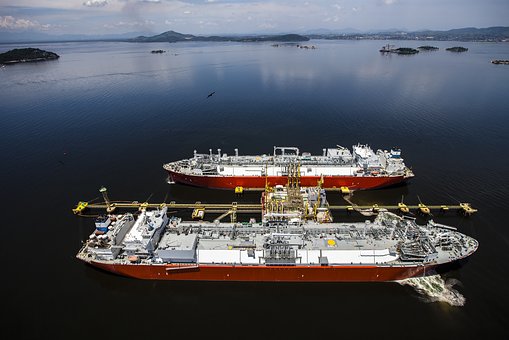
Bunker Tanker
Bunker Tanker is a vessel intended to provide offshore vessels with fuel. Smaller vessels from 100–5 000 dwt are bunker tankers and the layout is the sames as product tankers. Bunker Tanker is a vessel intended to provide offshore vessels with fuel. Smaller vessels from 100–5 000 dwt are bunker tankers and the layout is the sames as product tankers.
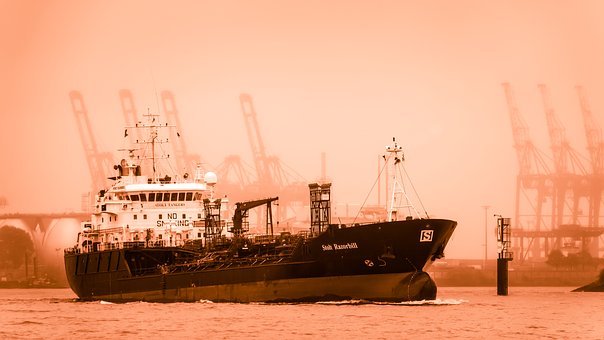
Bitumen/Asphalt Carriers
Bitumen / Asphalt Carriers are boats intended specifically for carrying asphalt / bitumen goods. The characteristics of these ships are that they are designed with “floating tanks,” which means the tanks can expand up to 260 ° C owing to the elevated temperature of the item they perform. Sometimes tanks are insulated to minimize the loss of heat. Typically, the size of a bitumen carrier is between 1000–6000 DWT oil from offshore petroleum crops (petroleum platforms) or petroleum fields to refineries in the lower section < 10 000 DWT. Ships falling in this category belong to the true “sea giants” and among crude oil tankers the world’s biggest vessels could be discovered.
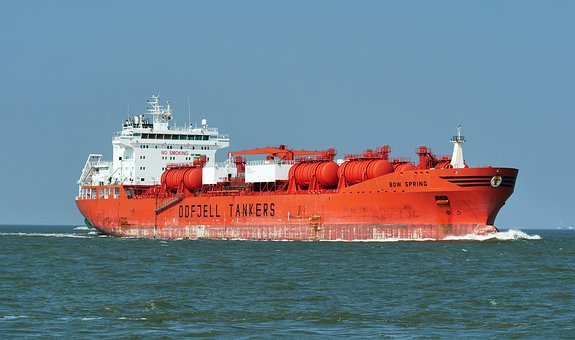
Gas Carrier(LNG/LPG/CNG)
Gas carrier ships are especially designed ocean-going vessels that are dedicated for transporting all types of liquefied natural gases (LNG) and liquefied petroleum gases (LPG) to their destinations
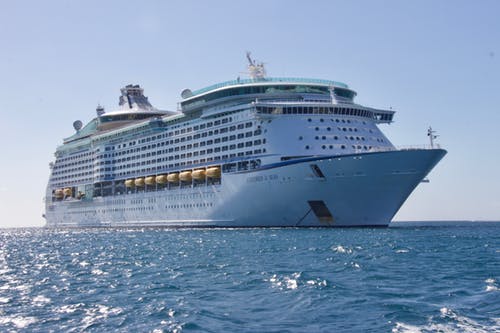
Passenger ships/cruise ships
Passenger ships/cruise ships
A passenger ship is a merchant ship whose primary function is to carry passengers on the sea.
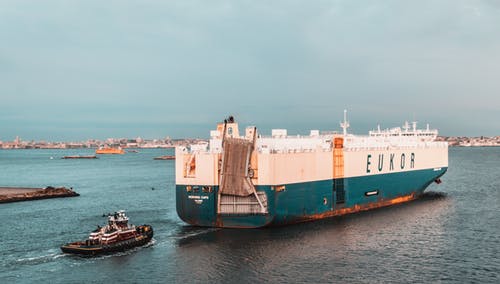
Ro-R0 ships (Roll-On Roll-Off vessels
Ro-R0 ships (Roll-On Roll-Off vessels)
Roll-on/roll-off ships are vessels designed to carry cargo such as cars, trucks, semi-trailer trucks, trailers, and railroad cars, that are driven on and off the ship on their own wheels or using a platform vehicle.
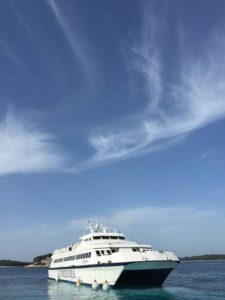
Ferries
Ferries
A ferry is a merchant vessel used to carry passengers, and sometimes vehicles and cargo, across a body of water.

Offshore vessels
Offshore Vessels are specially designed ships for transporting goods and personnel to offshore oil platform that operate deep in oceans. The size of these vessels ranges between 20 meters and 100 meters.
Classification of Tankers on the Basis of Size
1. VLCC:
( Very Large Crude Carriers) :They have a cargo carrying capacity of 2, 50,000 tons.
2. ULCC:
(Ultra Large Crude Carriers) and have a cargo hauling capacity range up to 5, 00,000 tons.
3. Panamax:
The classification of tankers that can pass through the Panama Canal is known as the Panamax. The cargo tankers which cannot be classified under this category owing to their size are known as the Post-Panamax tankers.
4. Aframax :
Tanker ships which are mainly used in the Mediterranean, China Sea and the Black Sea. These tankers have a dead weight tonnage (DWT) between 80,000 and 1, 20,000 tonnes.
5. Suezmax:
The classification of tankers that can pass through the Suez Canal is known as the Suezmax.
Realted Topic you may like: Fields in shipping industry

Related Post: Vacancy on cargo ships
